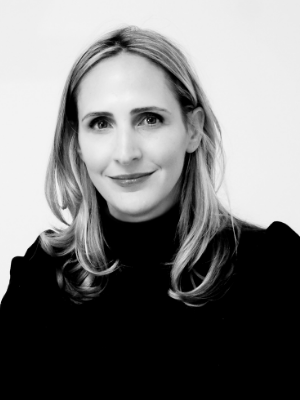 For every woman at the director level that was promoted to the next level in 2021, two women directors walked out the door of their company. Women leaders are now demanding more, and leaving their companies at unprecedented rates, according to The Women in The Workplace 2022 report by LeanIn.Org and McKinsey & Company, who have released the research annually since 2015.
For every woman at the director level that was promoted to the next level in 2021, two women directors walked out the door of their company. Women leaders are now demanding more, and leaving their companies at unprecedented rates, according to The Women in The Workplace 2022 report by LeanIn.Org and McKinsey & Company, who have released the research annually since 2015.
“We’re finally seeing the moment where women in leadership are voting with their feet,” said Alexis Krivkovich, a managing partner at McKinsey and cofounding report author.
In this “profound change,” women are indeed deciding to vote for the workplace they want with the most compelling power they will ever have: their presence, time and energy. Nothing short of this will shake up the workplace as we have known it. No matter the current representation, senior women are going beyond just getting access to upper levels and getting clearer on what they would like to experience and see happen there, and seeking that out. Could senior women’s participation from this place of self-empowerment catalyze greater change?
Women Aren’t Leaving, They’re Leaving For Better
“We are in the midst of a Great Breakup in corporate America. Women leaders are leaving their companies at the highest rate we’ve ever seen. They aren’t leaving the workforce entirely but are choosing to leave for companies with better career opportunities, flexibility, and a real commitment to DEI,” said Sheryl Sandberg, founder of Lean In, who leaned out of Facebook this past summer.
About 10.5% of female leaders (senior management and above) left their companies in 2021, compared to 9% of male leaders. On the average year, the spread is close with only a half-point gap.
Senior women leaders, after all the journey they have gained, aren’t walking out because they don’t think they have choices. They are walking about because they finally know they do – and they are taking their leadership assets with them in search of better opportunities. Having now recovered from pandemic job losses, women are more attuned to the relationship they want (and the ones will not tolerate) within the workplace. Women’s threshold to tolerate toxicity and inequity has been thinned, yet the broken rung is still there and the broken record of unequal outcomes plays wearingly on repeat. Women leaders are voting for the relationships they want to have with work.
Cultures That Work for Women’s Advancement
Women are as ambitious as men. Black women leaders (59%) and women of color (41%) are even more likely to want to be top executives (27%). But only 1 in 4 C-Suite leaders is a woman and only one in 20 is a woman of color. For every 100 men promoted from entry level to manager, just 87 women and 82 women of color are promoted.
And the signals that counter advancement come across in microaggressions or more overt dynamics: Female leaders are twice as likely as male counterparts to be mistaken for someone junior. 37% of women leaders said they’ve had a co-worker get credit for their idea, compared to 27% of men. Black female leaders are 1.5x more likely than women overall to have had their judgment or qualification questioned. Many women still feel undermined or passed over in the workplace.
Recognition for and Performance Consideration Of Essential Work
While women are twice as likely to do be doing DEI-related and inclusion work that is helping with company performance, they are disproportionally carrying an increasingly ‘valued’ aspect of leadership that too often goes unrecognized and 40% say does not factor into the performance review. Meanwhile, women leaders are more burnt out (43%) than male counterparts (31%).
Flexible Work Cultures that Embody the Talk Around Diversity, Equity and Inclusion
Women want a better work culture. Only 1 in 10 women wants to work on-site most of the time, and women will move for flexibility. It’s not surprising considering that 52% of senior female leaders do most of the family housework and childcare compared to 13% of senior male leaders. Women who work the way they want to feel far happier, feel they have more equal opportunity to advance and are less likely to leave their job. Remote work also provides a reprieve from office-based exclusion and as McKinsey points out, that is a fundamental issue for organizations to address: “Companies cannot rely on remote and hybrid work as a solution; they need to invest in creating a truly inclusive culture.”
Over the past two years, being in a culture committed to well-being and DEI has become more important to women, and they are 1.5 more likely to have left a job because they wanted a more inclusive culture.
Better And More Supportive Managers
Having a supportive manager is a top three criteria for women when thinking of joining or staying with an organization. Only about half of women say their manager encourages respectful behavior on their team regularly. Less than half say their manager shows interest in their career and helps them manage their workload. Black women and Latinas are particularly less likely to feel their manager shows interest in their career, checks in on their well-being or promotes inclusion on the team. They also experience less psychological safety. Women with various intersectional identities see gaps between the lip service to inclusion and what is actually happening in their experience.
Towards A Work Paradigm That Works For Women?
Female directors are becoming more sensitive to the conditions that don’t work for them, and it matters for them and future generations. Women under 30 are highly ambitious to become senior leaders, but 2/3 would be more interested if they saw senior women with a covetable work-life balance, an increasingly important career requirement for younger people.
The press isn’t focused on how bad this attrition of women leaders is for women. It’s focused on how bad the attrition of women leaders is for organizations. McKinsey has previously found that executives teams in the top quartile of gender diversity have a 25% greater likelihood of outperformance (above average profitability) than those in the bottom. LeanIn.Org and McKinsey have several recommendations for organizations following this recent report.
Stepping back, we are interested in what happens when women leaders take stock of their own value. All along, women have been trying to pave the way for those behind them by fighting to have a seat at the table. But increasingly, women are realizing that modeling leadership is not only about the rooms you are able to walk into, but also the rooms you are willing to walk away from. Because we need to walk towards creating organizational missions and cultures where all women (and people) are welcome and supported to lead and live their lives.
That is the power of esteeming the self. How would that mindset shift, at a collective level, give rise to more change in our workplace?
By Aimee Hansen


